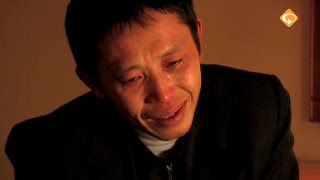
El pasado fin de semana vi la magnífica película “Cartas desde Iwo Jima”, de Clint Eastwood. Es una de esas películas con sustancia, llena de matices y con pasajes casi poéticos que te hacen reflexionar. La guerra es algo terrible que muestra lo peor y lo mejor del ser humano. Tras ver la película he pensado en muchas cosas, como por ejemplo en que los que están inmersos en ese ambiente tan horrible de muerte y destrucción humanas, muestran su personalidad diáfanamente y que somos siempre los mismos en contextos distintos. No hay un bando bueno y otro malo, solo personas con comportamientos buenos o malos. Si en cualquier conflicto supiésemos ponernos en el lugar del otro, no nos dejásemos dominar por los prejuicios que todos inevitablemente tenemos, habría menos problemas sociales. Las personas se ven avocadas a entrar de lleno en una batalla que no buscaban y no pueden dar media vuelta.
Es terrible, contradictorio y muy humano en el fondo el comportamiento, por ejemplo del protagonista principal, personaje interpretado por Ken Watanabe (soberbia interpretación), Samurai de principios que conoce y aprecia al bando contrario y que sin embargo se ve obligado a pelear contra él. Toma la decisión de defender la isla a sabiendas de que es una batalla perdida. Acata la decisión de sus superiores con el objetivo de retrasar al máximo el avance del ejercito norteamericano sobre tierra japonesa. Si por él fuese, Japón no habría entrado en guerra con los Estados Unidos pero su condición de militar le obliga a obedecer las órdenes.
Aparecen en la película también las figuras del fanático, del sádico, del que deprecia la vida,. También la figura de la persona sensible al sufrimiento ajeno..., en fin mucho material humano, la guerra contada desde el mundo de los sentimientos (por cierto, estupendos los flash back). Cuando la veía también he recordado otra película con mucho en común :

En ésta hay una secuencia que cuando la veo me emociona porque me hace pensar lo que de terrible e injusto tiene la guerra; es esa en la que los soldados norteamericanos entran en el campamento de los hasta ese momento invisibles japoneses. La destrucción de un lugar donde lo que se ve es la más absoluta imagen de nosotros: personas escribiendo cartas a familiares, enfermos y heridos que se recuperan, personas que rezan,...personas en definitiva y no enemigos o “malos” como en la simpleza del fanático aparecen siempre los del bando contrario.
El ejército japonés cometió atrocidades terribles en China durante la ocupación de este país. Son conocidas entre otras La Matanza de Nanking, comparable a otros muchos genocidios que en el siglo pasado ha habido y que me temo mucho que en este habrá.
Para ayudar a evitar que se repitan tales atrocidades, nosotros, personas corrientes no debemos nunca “dar cancha “ al fanático, tenemos que contribuir a que nos veamos unos a otros como personas antes que nada, seamos de donde seamos y nunca dejarnos dominar por los prejuicios.
En China, hay quien interesadamente mantiene vivo un resquemor, cuando no hostilidad ante Japón. Me parece un error y yo aplaudo a los que de esto se distancian.
Me gusta que personas relevantes de China huyan de este prejuicio antijaponés y manifiesten en sus obras aprecio por los japoneses como por ejemplo Zhang Yimou, con Riding Alone for a Thounsand Miles, o escritoras como Shan Sa,
en cuya novela La jugadora de Go (que leí hace unos años) pone de manifiesto esta idea de que el amor diluye los prejuicios y el aprecio al otro nace cuando en él nos vemos a nosotros.





















